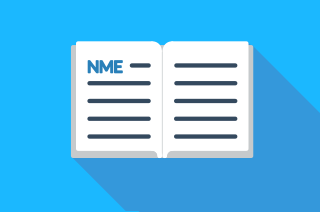This so-called ‘transparency template’ is nothing more than a smokescreen. It fails to deliver the meaningful disclosure the law demands – and rightsholders deserve.”
News Media Europe (NME), representing leading news publishers across the EU, today expressed its profound disappointment in the European Commission’s finalised transparency template for general-purpose AI models under Article 53 of the AI Act.
While the AI Act rightly obliges providers to publish a “sufficiently detailed” summary of training data, the Template released today is alarmingly superficial. It lacks the specificity and granularity necessary for rightsholders to verify whether their copyright-protected content has been exploited — let alone to enforce their rights effectively.
“This Template lets model developers off the hook. Instead of shining a light on what content was used, it wraps the process in vague ‘narrative summaries’ and cherry-picked domain name lists,” said Wout van Wijk, Executive Director of News Media Europe. “The Commission had the opportunity to set a global precedent for AI transparency. Instead, it blinked.”
Despite extensive consultations, the final outcome reflects the interests of major AI providers far more than those of Europe’s creative sector. The reliance on broad categorizations, undisclosed datasets, and narrative generalities makes it nearly impossible to determine whether protected journalistic content was used – especially content hidden behind paywalls or accessed in violation of scraping rules.
A Betrayal of the AI Act’s Intent The AI Act – and particularly Recital 107 – clearly states that summaries should empower rightsholders to exercise and enforce their rights. Yet the current Template enables opacity, not transparency. Requiring providers to reveal only the “top 10%” of scraped domains while shielding the majority of datasets from scrutiny renders enforcement a legal guessing game.
“We’re expected to defend our rights against black-box models trained on undisclosed data from undisclosed sources,” van Wijk continued. “This is not compliance. It’s complicity.”
The Template even allows companies to sidestep disclosure entirely by invoking trade secrets — a loophole so wide, it swallows the rule. And while the Commission hints at optional disclosure “upon request,” this voluntary gesture is a poor substitute for the mandatory transparency the AI Act promises.
News Media Europe Calls for Immediate Revisions News Media Europe calls on the European Commission to urgently revise the Template and establish an enforcement mechanism with real teeth — including:
Mandatory disclosure of all scraped domains, not just a curated sample.
Itemised identification of licensed versus unlicensed datasets.
A binding “upon request” mechanism with deadlines and penalties.
Clear consequences for providers who fail to comply in good faith.
The Commission must uphold the integrity of the AI Act and stand with European creators, not the tech giants who profit from their work without consent, attribution, or remuneration.
“Europe’s media is not a free training set. Transparency is not a favour — it’s a right enshrined in law,” van Wijk concluded.
Contact: Wout van Wijk
Press releases , December 9, 2025
News Media Europe welcomes EU probe into Google’s AI use of news content
News Media Europe (NME), representing more than 2,700 European news brands, strongly welcomes the European Commission’s decision to open a…
Press releases , November 19, 2025
Digital Omnibus: A Foundation for Modern Rules, Publishers Urge EU to Maintain Simplification Drive
When complex digital rules such as the GDPR apply all the same to big tech and local news publishers, regardless…
Press releases , November 12, 2025
Media support strong(er) EU Democracy Shield
Today, the European Commission published important proposals to strengthen the sustainability and resilience of free media in Europe, stressing the…
Press releases , September 10, 2025
European press publishers react to VDL’s State of the Union: Build Sustainability, Not Dependence
European news publishers warmly welcome President Von Der Leyen’s strong words in support of free and independent media in her…
Press releases , September 9, 2025
Adtech: European publishers call for strong remedies
European publishers call for strong remedies following the European Commission’s decision against Google in its adtech investigation on Friday. The…
Press releases , May 22, 2025
Deirdre Veldon of The Irish Times Appointed President of News Media Europe
News Media Europe appointed Deirdre Veldon, Managing Director of The Irish Times Group, as its new President at its General…
Press releases , May 9, 2025
Valuing Freedom, Unity and Peace on Europe Day 2025 as we Celebrate the 75th Anniversary of the Schuman Declaration
Today, on Europe Day, we celebrate the founding of the European Union and the values that define it—freedom, unity, and…
Press releases , March 28, 2025
Joint statement by a coalition of authors, performers and other rightsholders active across the EU’s cultural and creative sectors regarding the third draft of the EU AI Act’s GPAI Code of Practice
The third draft of the GPAI Code of Practice undermines the objectives of the AI Act, contravenes EU law and…
Press releases , March 27, 2025
Statement of concern regarding draft AI code of practice
European news publishers are deeply concerned about the third draft code of practice published last week by the European Commission. The draft…
Press releases , March 24, 2025
European press publishers: Google is not entitled to suppress nor set the value of journalistic information “Made in Europe”
European press publishers firmly reject Google’s alleged findings regarding the relevance and value for the company of European journalistic content in…
Press releases , November 14, 2024
Statement on Google’s unilateral test on European news content
News Media Europe has taken note of Google’s blog post “Providing more data about news results in the EU” (link)….
Press releases , October 17, 2024
News Media Europe urges Dutch government to keep press products accessible to all
The European association of news publishers calls for the retention of the reduced VAT rate of 9% on daily newspapers,…
Press releases , March 13, 2024
EU AI Act: Joint statement from European creators and rightsholders
-Brussels, 13 March 2024- We represent a broad coalition of organisations in Europe’s creative and cultural sectors, including music, visual,…
Press releases , March 13, 2024
Adoption of the Media Freedom Act: high expectations for the protection of the press
PRESS RELEASE -Brussels, 13 March 2024- With the adoption of the European Media Freedom Act today in the European Parliament,…
Press releases , December 15, 2023
Press publishers greet improvements to Media Freedom Act
PRESS RELEASE -Brussels, 15 December 2023- Today EU Institutions finalised a political agreement on the European Media Freedom Act. News…
Press releases , October 3, 2023
Final stretch of the Media Freedom Act: How to get it right?
PRESS RELEASE -Brussels, 3 October 2023- The European Parliament adopted today its position on the European Media Freedom Act including…
Press releases , September 7, 2023
Supporting journalism in Europe must be taken seriously – Publishers’ call to Media Freedom Act negotiators
Brussels, 7 September 2023 Today the Culture Committee leading parliamentary work on the European Media Freedom Act (EMFA) adopted its…
Press releases , June 21, 2023
EU must try harder for a free and competitive European press
PRESS RELEASE -Brussels, 21 June 2023- European news publishers regard the today’s general approach on the European Media Freedom Act…
Press releases , June 14, 2023
Long-awaited EU probe against Google advertising backed by European publishers
The European Commission filed a formal complaint against Google’s advertising business for breaching competition rules against abuses of market dominance. Wout van Wijk,…
Press releases , May 25, 2023
European Parliament protects news media against intimidating and silencing lawsuits that kill free speech
This week, the Civil Liberties (LIBE) and Culture and Education (CULT) Committees in the European Parliament adopted two important opinions…
Press releases , September 16, 2022
“Media Freedom Act must be amended to live up to its original intention”, say European publishers
Brussels, 16 September 2022 The EU is proposing a “Media Freedom Act” to protect the independence of media in the…
Press releases , July 5, 2022
Guide for Journalists on Documenting International Crimes
PRESS RELEASE -Brussels, 5 July 2022- The Centre for Law and Democracy and News Media Europe are thrilled to launch…
Press releases , June 16, 2022
Big tech’s self-imposed rules on fighting fake news treat symptoms, not causes
PRESS RELEASE -Brussels, 16 June 2022- European news publishers fear that the platform’s proposals to tackle online fake news, the…
Press releases , April 27, 2022
New EU legislation hits back at abuse lawsuits and empowers the free press
PRESS RELEASE -Brussels, 27 April 2022- Today, European press publishers applaud legislation tackling abusive lawsuits against public participation, also known as “SLAPPs”….
Press releases , April 23, 2022
New European internet rules: putting an end to the wild wild west?
PRESS RELEASE -Brussels, 23 April 2022- The adoption of new European internet rules today will lead to a more trust…
Press releases , March 24, 2022
European media warn big tech to comply with EU digital market rules or face legal action
PRESS RELEASE -Brussels, 24 March 2022- Media markets are about to witness a revolution in their difficult relationship with big…
Press releases , February 25, 2022
European press publishers call for safety of journalists following Russian invasion of Ukraine
STATEMENT -Brussels, 25 February 2022- In a conflict as serious as the one unfolding in Ukraine, free and unhampered reporting…
Press releases , January 20, 2022
The European Parliament fails to deliver a strong Digital Services Act
PRESS RELEASE -Brussels, 20 January 2022- Today, the European Parliament plenary adopted its position on the Digital Services Act (DSA). The text…
Press releases , January 18, 2022
The Digital Services Act must safeguard freedom of expression online
PRESS RELEASE -Brussels, 18 January 2022- Imagine a world where platforms can censor negative news about themselves, where they can…
Press releases , December 16, 2021
European Parliament’s DMA vote paves the way for a future-forward media sector
PRESS RELEASE -Brussels, 15 December 2021- A broad coalition from the European media sector, including public and commercial broadcasters, radios…
Press releases , December 14, 2021
European press urges European Parliament to protect editorial content integrity and online advertising revenues
PRESS RELEASE -Brussels, 14 December 2021- Today, the Internal Market and Consumer Protection (IMCO) committee adopted its report on the…
Press releases , December 7, 2021
News publishers hail new VAT rules that allow for zero-rating of journalistic publications
PRESS RELEASE -Brussels, 7 December 2021- Today, EU Finance Ministers (ECOFIN) adopted important amendments to the EU VAT Directive which…
Press releases , November 25, 2021
News publishers call on policy makers to focus on bringing meaningful transparency to citizens in relation to political advertising
PRESS RELEASE –Brussels, 25 November 2021- News Media Europe takes note of today’s proposal for a Regulation on the transparency…
Press releases , November 25, 2021
European Media call on co-legislators to protect editorial content integrity and free media in the Digital Services Act
PRESS RELEASE -Brussels, 25 November 2021- Today, EU Ministers adopted the Council’s General Approach on the Digital Services Act (DSA)….
Press releases , November 25, 2021
Media sector calls for remaining loopholes in the Digital Markets Act to be addressed during trialogue
PRESS RELEASE -Brussels, 25 November 2021- The European media sector, through the voice of public and commercial broadcasters, radios and…
Press releases , November 19, 2021
Victoria Svanberg assumes Presidency of News Media Europe
PRESS RELEASE -Brussels, 19 November 2021- Victoria Svanberg, chairman of Swedish publishing group NWT Media, is the new President of…
Press releases , September 16, 2021
European press publishers call on European Commission to stay strong on implementation of Recommendations
PRESS RELEASE -Brussels, 16 September 2021- Today, the European Commission unveiled its Recommendation for the Safety of Journalists in Europe….
Press releases , July 27, 2021
European news media asks Member States to transpose smart copyright rules
Brussels, 27 July 2021 On 26 July the European Commission started infringement proceedings against 23 Member States for failure to transpose the…
Press releases , June 22, 2021
European press publishers encouraged by EU antitrust probe into Google ad-tech
PRESS RELEASE -Brussels, 22 June 2021- The European Commission opened today an antitrust investigation to assess whether Google is abusing its dominant…
Press releases , June 7, 2021
European publishers slam delays in implementation of Copyright Directive
PRESS RELEASE -Brussels, 7 June 2021- European press publishers association News Media Europe slams the late transposition of the European…
Press releases , May 26, 2021
European press publishers insist on press freedom safeguards in the reviewed Disinformation Code of Practice
PRESS RELEASE -Brussels, 26 May 2021- In response to the European Commission’s Guidelines reviewing the Code of Practice on Disinformation…
Press releases , May 19, 2021
Czech publishers association Asociace Online Vydavatelu (Association of online publishers) joins News Media Europe
PRESS RELEASE -Prague / Brussels, 19 May 2021- Czech publishers association Asociace Online Vydavatelu (Association of online publishers) joins News…
Press releases , April 30, 2021
European Commission sends Statement of Objections to Apple following Spotify complaint
PRESS RELEASE -Brussels, 30 April 2021- News Media Europe applauds the European Commission’s decision to send Apple a Statement of Objections,…
Press releases , February 22, 2021
Europe’s press publishers & Microsoft call for Australian-style arbitration mechanism in Europe to ensure tech gatekeepers remunerate press publishers fairly for use of content
PRESS RELEASE -22 February 2021- Europe’s press publishers and Microsoft today agreed to work together on a solution to ensure…
Press releases , February 11, 2021
News Media Europe reacts to Member States’ common approach on the ePrivacy Regulation
PRESS RELEASE –Brussels, 11 February 2021– EU Member States agreed on a common approach to the ePrivacy Regulation proposal which…
Press releases , December 15, 2020
News publishers: “DSA and DMA are a missed opportunity to rebalance online ecosystem”
PRESS RELEASE –Brussels, 15 December 2020– News publishers speak of a missed opportunity following today’s announcement of the Digital Services…
Press releases , December 3, 2020
News publishers optimistic about European Commission’s plans to defend media freedom and sustainability
PRESS RELEASE -Brussels, 3 December 2020- Today, the European Commission released two important and complementary strategies for the news industry:the…
Press releases , November 26, 2020
News Media Europe reaction to European Parliament’s resolution on strengthening media freedom
PRESS RELEASE -Brussels, 25 November 2020- A week before the publication of the European Democracy Action Plan, the European Parliament’s…
Press releases , November 19, 2020
Press publishers welcome the EU Council Conclusions on safeguarding a free and pluralistic media system and warn against trust indicators and the promotion of public communications on mega platforms
PRESS RELEASE -Brussels, 19 November 2020- European newspaper and magazine publishers across Europe welcome the EU Council Conclusions on safeguarding…
Press releases , October 27, 2020
Joanne McGreevy appointed Vice President at News Media Europe
PRESS RELEASE -Brussels, 27 October 2020- Joanne McGreevy, Marketplace Publisher at Reach Ireland, joins Brussels-based trade association News Media Europe…










